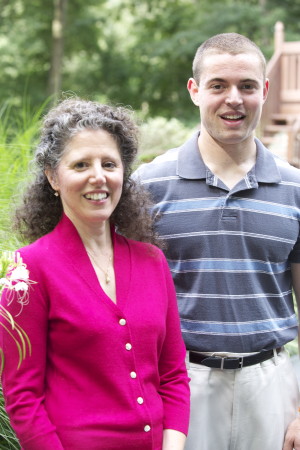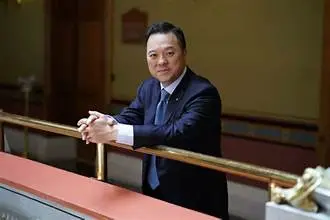For years as a systems engineer at General Electric, Randi Redmond Oster”™s world used to be ruled by safety sensors and proper protocol.
Then sitting at the bedside of her ill son at the hospital, Oster found herself in shock witnessing the protocols of the hospital. Complications related to her son”™s Crohn”™s disease were flaring up and no one at the hospital was helping him, Oster said. She watched as mistake after mistake came through in his treatment.
“I used to lose sleep over safety sensors going wrong at work,” Oster said. “And there my son was at the hospital and nothing was happening for him.”

The episode raised many questions for Oster, who from that point forward began to take notice of the inefficiencies in the health care system. From repeated, unnecessary questions, to door frames too narrow to fit a bed, it seems the health care industry has yet to adopt the same business practices as the corporate world, Oster said.
“In corporate America we try to eliminate waste and be as efficient as possible,” Oster said, mentioning hospitals”™ lack of systems, feedback and teamwork. “I started to realize I need to ask questions. As much as I wanted to put full faith in my son”™s doctors, I needed to really understand what was going on.”
“If we operated this way at GE, planes would crash,” she said.
After years of trips to the emergency room for her son, Gary, and for her aging parents, Oster considers herself an expert when it comes to navigating the health care system. Leaning on her corporate experiences, she”™s on a mission now to help others to be able to do the same.
Her book, “Questioning Protocol,” is due out later this year and is both a personal memoir and toolkit for patients to empower themselves. To Oster, the best way to improve quality of care is to empower the public ”” that means knowing what questions to ask and when to say no.
“I”™m not saying question every little thing, but sometimes there are more options on the table than you know,” Oster said.
For instance, an X-ray was needed once to see if a tube had been properly placed in Gary”™s nose, Oster said. Concerned with the radiation exposure, however, Oster asked if there was any alternative. The first nurse said no. The second said yes and used an acid test that was faster, cheaper and safer, Oster said.
“By questioning your doctor, the concern is that you”™re not getting the best care,” Oster said. “But more treatment and medicine doesn”™t necessarily mean better. What”™s important is to understand what is important to the patient and to look beyond, sometimes, the medical answer.”
With the Affordable Care Act, Oster said many have been very interested in the idea of empowering patients and taking on a more active role in decision making. Since March she”™s spoken at roughly 40 events, all with packed rooms, discussing her experiences and helping people understand what changes are happening in the health care industry.
“That”™s my mission now, to empower people so they can understand the law and navigate the system,” Oster said. “We just want to improve the process and I think we”™ll do that by improving the public”™s involvement. If you improve the process, everyone”™s performance will improve.”
Crohn”™s is a lifelong disease, but Gary is currently in remission and takes no medications, Oster said. He”™s 19 years old and a body builder.




















